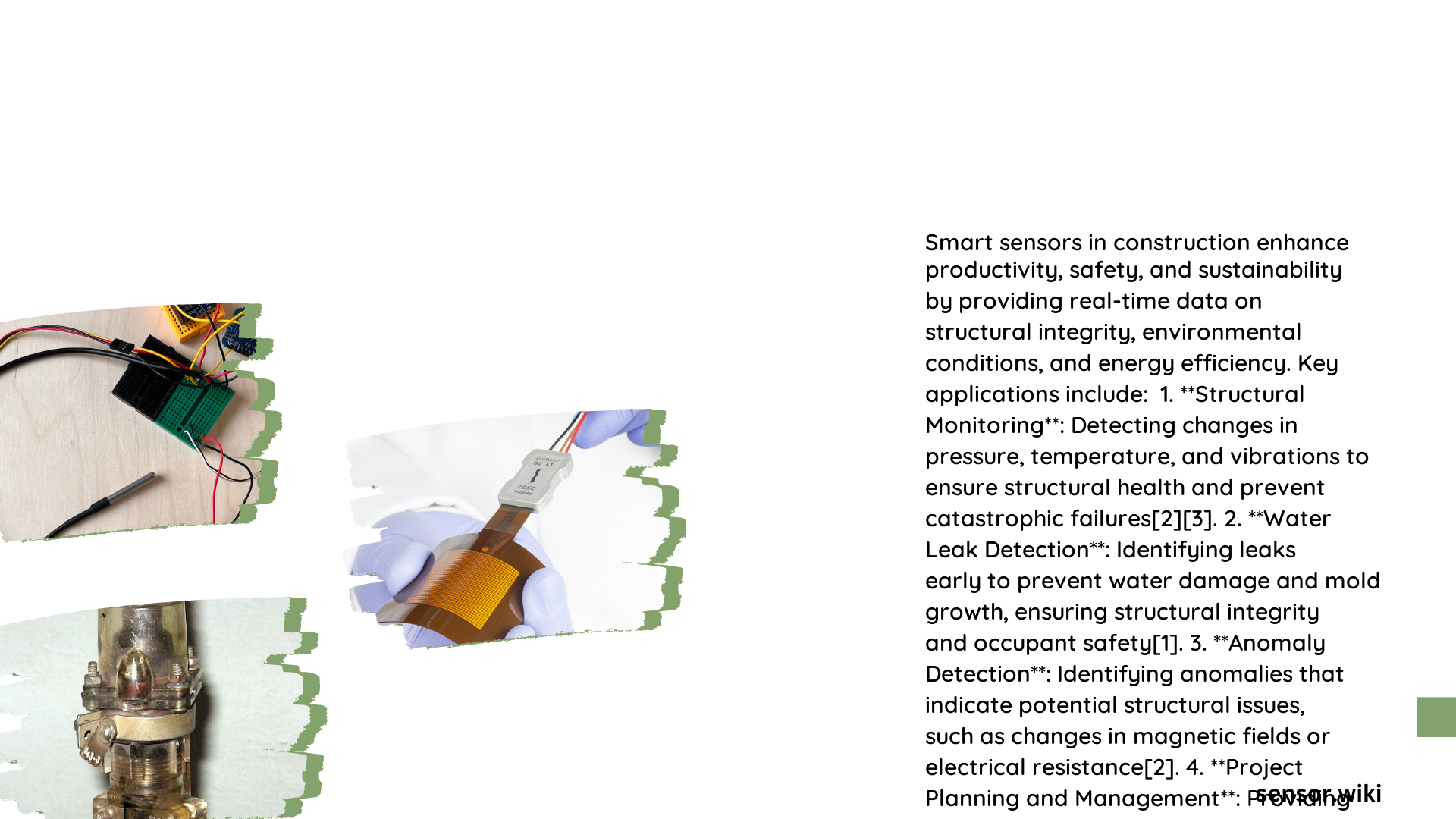Smart sensors in construction represent a groundbreaking technological advancement that revolutionizes traditional building management. These sophisticated electronic devices seamlessly integrate into construction environments, providing real-time data collection, predictive maintenance capabilities, and comprehensive performance insights across multiple project dimensions. By leveraging advanced sensing technologies, construction professionals can now monitor structural health, environmental conditions, and operational efficiency with unprecedented precision and reliability.
What Are Smart Sensors in Construction?
Smart sensors are intelligent electronic devices designed to detect, measure, and transmit specific physical parameters within construction environments. Unlike traditional sensors, these advanced technologies offer:
- Real-time monitoring
- Automated data collection
- Predictive analytics
- Remote accessibility
How Do Smart Sensors Transform Construction Processes?
Performance Monitoring Capabilities
Smart sensors enable comprehensive performance tracking through multiple measurement techniques:
| Sensor Type | Primary Function | Measurement Range |
|---|---|---|
| Temperature | Structural Integrity | -40°C to 125°C |
| Humidity | Material Condition | 0-100% RH |
| Vibration | Structural Stability | 0-100g |
| Pressure | Load Monitoring | 0-500 bar |
Key Benefits for Construction Projects
- Enhanced Safety
- Early detection of potential structural issues
- Real-time worker environment monitoring
-
Predictive maintenance alerts
-
Cost Optimization
- Reduced manual inspection requirements
- Minimized unexpected maintenance expenses
-
Improved resource allocation
-
Quality Control
- Continuous material performance tracking
- Precise environmental condition management
- Comprehensive documentation of construction processes
What Technologies Enable Smart Sensor Functionality?
Connectivity Infrastructure
Smart sensors leverage advanced communication protocols:
– Wireless Networks: Wi-Fi, Bluetooth, Zigbee
– Cellular Connectivity
– Edge Computing Capabilities
Data Transmission Mechanisms
- Low-power wide-area networks (LPWAN)
- Internet of Things (IoT) platforms
- Cloud-based data management systems
What Challenges Do Smart Sensors Address?
Construction professionals frequently encounter complex monitoring challenges that traditional methods cannot effectively resolve. Smart sensors provide solutions by:
- Eliminating manual measurement limitations
- Providing continuous, accurate data streams
- Enabling predictive maintenance strategies
- Reducing human error in monitoring processes
Implementation Considerations
Sensor Selection Criteria
- Accuracy: ±0.5% to ±2% measurement precision
- Environmental Durability
- Compatibility with Existing Systems
- Scalability
Cost-Benefit Analysis
- Initial investment: 0.1-0.5% of total project budget
- Potential savings: Up to 30% in operational expenses
- ROI timeline: 12-24 months
Future Outlook for Smart Sensors
The construction industry is rapidly evolving towards more intelligent, data-driven approaches. Smart sensors represent a critical technological frontier, promising:
- Advanced machine learning integration
- More sophisticated predictive algorithms
- Enhanced artificial intelligence capabilities
Conclusion

Smart sensors in construction are not merely technological accessories but fundamental tools reshaping how building projects are conceived, executed, and maintained. By providing unprecedented visibility into complex construction processes, these innovative devices are setting new standards for efficiency, safety, and performance.
